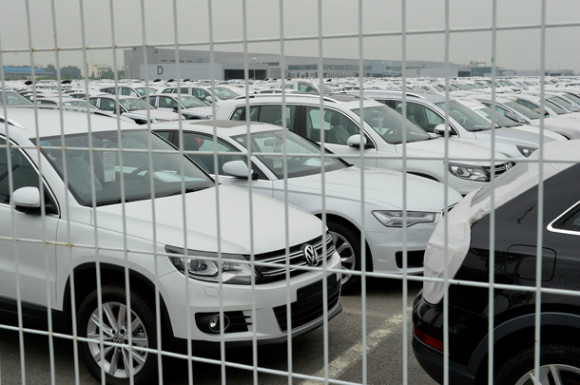재테크, 원점으로 돌아가서 처음부터 다시!
자본주의 시스템이 지배하는 돈은 자연스럽게 우리 삶을 지배해 버렸다. 많은 사람들이 성공의 첫번째 요소로 부를 꼽고 있으며 부를 얻기위한 노력은 우리 공통의 숙원이 된 것 같다. 이러한 모든 사람들의 열망은 쏟아지는 재테크 관련 지식이나 서적으로 발현되는 것을 볼 수 있는데, 그 수많은 정보와 서적들은 사실 담겨져 있는 지식의 전달역할밖에 하지 못한다. 활용하지 못하는 지식은 지식 그 이상도 그 이하도 아니다. 특히 재테크같이 실용과 밀접한 분야의 지식은 습득과 동시에 활용되어야 그 가치를 인정받을 수 있는 것이 아닌가?

넘쳐나는 재테크 정보중에 어떤 것이 쓸만한지 선별하기도 힘들고 또 어렵게 선별했다 하더라도 내 상황에 맞는 정보인지, 실천 가능한 정보인지 분별하기도 힘들다. 이에 스스로의 재무상황을 점검하고 알맞은 재테크 방벙을 고민하여 실질적인 도움을 받을 수 있는 재테크 서적이 발행됐다. 바로 <7일 만에 끝내는 돈 공부>이다. 물론 7일만에 돈과련된 공부를 다 섭렵할 수는 없을것이다. 하지만 저자가 이 책을 집필한 의도는 작은 시도나마 독자들이 직접 실행해 봄으로써 몸으로 체득함으로써 멀리 가야할 길의 채비를 단단히 할 수 있도록 도우려는 취지가 강한 것 같다.

제목에서 암시하듯 이 책은 7일동안 수행할 미션들로 구성되어 있다. 1일차 ‘부자가 되려면 돈에 대한 생각부터 바꾸자’로 시작해 7일차 ‘금융회사에 속지 않고 행복한 노년을 준비하는 방법’까지로 구성되어 있다. 각 장의 마지막 부분에는 실습을 유도하기 위한 Just Do It! 항목을 마련해 비전선언문 및 액션 플랜 작성, 저수지 통장 만들기 등 각 일차에 필요한 실습 과제들을 수행할 수 있도록 되어 있다. 그리고 7일차 이후 제일 마지막 부분에는 저자와의 인터뷰를 통해 저자가 바라보는 재테크의 의미와 이 책의 집필의도 그리고 저자가 독자들에게 바라는 점 등을 알 수 있다. 사실 저자와의 인터뷰는 저자가 머릿말에서 강조했던 분분들을 재차 확인해 볼 수 있는 내용들이 많다. 하지만 정말 중요한 개념과 내용이라 생각한다.
경제적 자유란 자신의 소득 범위 내에서
미래의 경제적 위험에 대비하고
돈을 통제할 수 있는 시스템을 만든 후
돈으로부터 자유로워지는 것이다.

우리는 돈을 통제하고 있는가? 아니면 돈에 통제 당하고 있는가? 돈은 많다고 다 좋은 것인가? 어느 정도의 돈이 있어야 많은 양인가? 정말 중요한 질문들이지만 우리는 조금더 많이, 더욱더 많이 만을 외치며 그저 돈을 긁어 모으는 방법에만 혈안이 되어 있었는지도 모르겠다. 단순이 자산을 불리는 재테크가 아닌 돈에 대한 관념을 새롭게 인식하고 또 나에게 걸맞는, 실행 가능한 재테를 이 책을 통해서 설계해 볼 수 있을 것이다. 평생의 숙제 재테크. 먼 길 돌아왔더라도 앞으로 가야할 길이 더 멀기 때문에 먼 여정의 동반자로서 이 책을 택하는 것도 좋을 듯 하다.

'My Life > Book' 카테고리의 다른 글
| 남을 돕는 것이 자신을 돕는 것이다 (0) | 2016.12.16 |
|---|---|
| 5~7세, 초등 입학전 어휘를 잡자! (0) | 2016.12.15 |
| 마음을 어루만지는 소리의 향연 (0) | 2016.12.08 |
| 카이사르의 여자들 (0) | 2016.12.07 |
| 20세기 최고의 사랑의 메신저, 마더 테레사 (0) | 2016.12.06 |
きる (着る): 키루 (입다)
上着(うわぎ)を着(き)てください。: 겉옷을 입어주세요.
恩(おん)に着(き)る。: 은혜를 입다.
着(き)るものがありません。: 입을 것이 없다.

'Study > Japanese' 카테고리의 다른 글
| おちつく (落ち着く): 오치츠쿠 (자리잡다 / 정착하다) (0) | 2016.12.16 |
|---|---|
| まげる (曲げる): 마게루 (구부리다 / 굽히다) (0) | 2016.12.15 |
| ぬすむ (盗む): 누스무 (훔치다) (0) | 2016.12.08 |
| のぞく (覗く): 노조쿠 (엿보다 / 들여다 보다) (0) | 2016.12.07 |
| のぞく (除く): 노조쿠 (제거하다 / 없애다) (0) | 2016.12.06 |
More imported cars face sales ban
Nissan, BMW and Porsche falsified certification documents on 10 imported models, the government said Tuesday, and the automakers could be banned from sales in Korea as early as next month. The discovery further taints the image of imported brands in the local market after an emissions scandal in which Volkswagen was found to have manipulated its emissions and fuel efficiency paperwork swept the country. The Ministry of Environment widened its investigation after the VW scandal. On Tuesday, the ministry said that two cars from Nissan, one car from BMW and seven from Porsche manipulated documents in a similar manner to Volkswagen. The cars may be subject to decertification and a sales ban, once illegal fabrication is confirmed in a hearing. The automakers could also face fines that reach a combined 6.49 billion won ($5.6 million), the ministry said. The ministry had been inspecting 15 import brands since August following the Volkswagen scandal.
Nissan submitted paperwork that indicated that its Infiniti Q50 was certified in Japan but the ministry said the automaker didn’t test in Japan. BMW was caught using test data of its X6 M model on its X5 M certification document. BMW said in a statement that its “X5 M and X6 M models share emissions defeat device and engines. We will explain more of why X6 M’s data was included in X5 M’s certification document in the hearing.” Porsche changed the emissions test data of three models including the Macan S Diesel and falsified documents to appear they were from a certified institution, when the tests were conducted in institutions uncertified by the nation’s Environment Ministry, on four other models including Cayman GTS.
Nissan’s Qashqai sport-utility vehicle, which already has been banned in the nation due to emissions-rigging in May, was included in the list. While Porsche Korea self-reported problematic documents to the Environment Ministry during the inspections, Nissan will have to explain its documentation before mid-December, when decertification is scheduled. “We are also pressing criminal charges against automakers if they do not come up with a sufficient explanation for their actions,” the Environment Ministry said in a statement. Fines levied on the automakers are based on revenue they received on affected models in Korea. Nissan is subject to 3.2 billion won in fines, BMW faces fines of 430 million won and Porsche 2.86 billion won. The sales ban targets six models, as four Porsche models have been discontinued. “Renowned import brands mostly bring their own certified test papers and we approved of those documents because fabrication was never on our minds,” said Park Yong-hee, a researcher at the National Institute of Environmental Research. “We have no option but to take a closer look at documents if import brands switch test results or manipulate them to make the certification process faster.”
Meanwhile, the ministry will demand Volkswagen, which had been ordered by the ministry to recall emissions-rigged cars, supplement its recall plan submitted last month. The Environment Ministry and the Ministry of Land, Infrastructure and Transport are testing the fuel efficiency of Volkswagens after the recall and approval of the plan will be decided next month. Volkswagen has been embroiled in an emissions rigging scandal since September 2015, then faced another scandal in August of this year as it falsified emissions and noise test results on its popular models including the Golf, Polo and Beetle. The scandal led to a sales ban on 80 car models by VW and Audi, both brands under Volkswagen Group. The scandals knocked Audi and Volkswagen from the list of the top 10 import brands in October, according to data from the Korea Automobile Importers and Distributors Association. Audi sold 475 cars and Volkswagen sold only 30 cars in Korea last month.

'Study > English' 카테고리의 다른 글
| Korean students’ scores take tumble on PISA assessment (0) | 2016.12.16 |
|---|---|
| Korean auto exports rebound after 13 months of declines (0) | 2016.12.15 |
| Bluewings win Cup in dramatic fashion (0) | 2016.12.08 |
| Public institutions to boost hiring (0) | 2016.12.07 |
| Can India Defeat China as the Superpower in Asia? (0) | 2016.12.06 |




 단순이 자산을 불리는 재테크가 아닌 돈에 대한 관념을 새롭게 인식하고 또 나에게 걸맞는, 실행 가능한 재테를 이 책을 통해서 설계해 볼 수 있을 것이다.
단순이 자산을 불리는 재테크가 아닌 돈에 대한 관념을 새롭게 인식하고 또 나에게 걸맞는, 실행 가능한 재테를 이 책을 통해서 설계해 볼 수 있을 것이다.